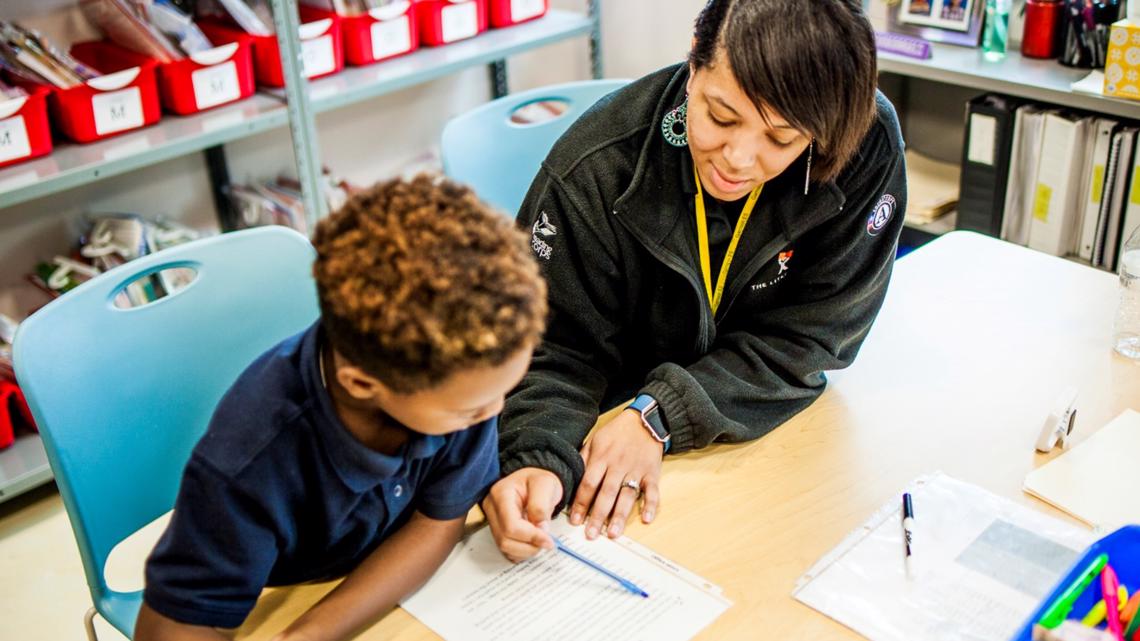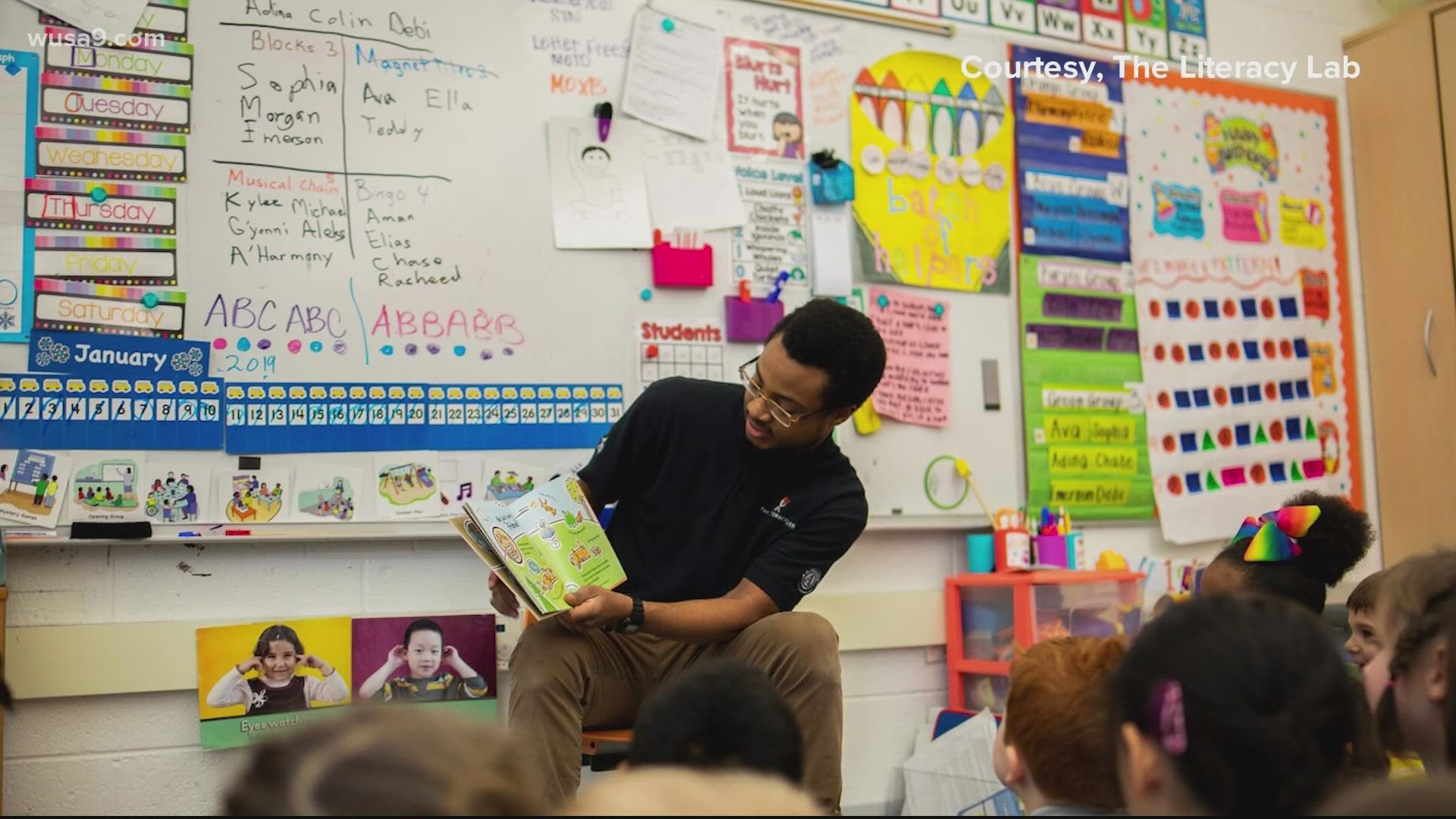WASHINGTON D.C., DC — School systems across the country are working to figure out how to close a widening achievement gap among students that has been exacerbated by the COVID-19 pandemic.
The 'American Rescue Plan' signed into law by President Biden in March sets aside $122 billion dollars for K-12 schools. The money will allow schools to reopen safely and address the academic, social, emotional, and mental health needs of their students, according to the Department of Education.
D.C. Public Schools have already received just over $386 million that the Office of the State Superintendent of Education has earmarked for a number of different areas.


For example, $41 million will be spent over four years on a program called 'High-impact Tutoring'.
WUSA9 visited a local organization that has spent years doing that type of tutoring to find out more about it.
"Parents are like 'I didn't know what to do. My student was so behind and I couldn't really help them'," said Literacy Lab tutor Nora Boles. "I don't think you can put a price on the return that the students will get — the benefits they'll get — from this increase in the budget."
Tutors like Pollas and Moah Boles are helping D.C. kids and others in Maryland and Virginia get a better grasp on their reading skills.
They work with an organization called The Literacy Lab which provides children from low-income families with individualized reading instruction to improve their literacy skills, according to its website.
"They need a lot of support. They need more support than their teacher might be able to give them — that their school might be able to give them," said Literacy Lab Leading Men Fellow Moah Pollas.
High-intensity tutoring is done either one-on-one or in extremely small groups.
"It's really sustained. It's every day of the week, five days a week. Typically my sessions run from twenty to twenty-five minutes," said Literacy Lab tutor Elizabeth Feeser.
According to data from the Annie E Casey Foundation — 43% of D.C. 4th graders lack basic reading skills. That's worse than the national average of 35%.
"It's really making a huge difference," said Feeser. "Just by having their eyes on the page for that much longer. That extra 20 minutes can make a huge difference."
Tutor Elizabeth Feeser sees the successes firsthand. And all three tutors WUSA9 spoke with, believing this extra personalized instruction will help more D.C. students see their full potential.
D.C. plans to begin utilizing high-impact tutoring in schools this fall.

